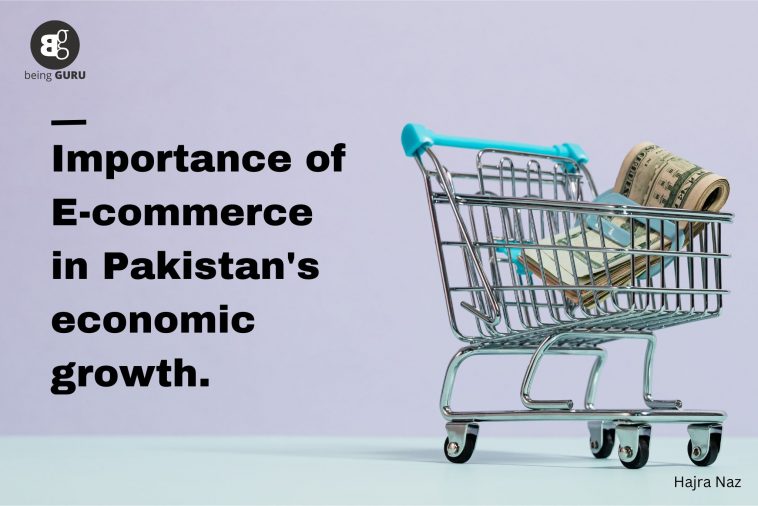Due to the increase in internet penetration, the rise of social media, and the growing popularity of online marketplaces the e-commerce industry in Pakistan has experienced significant growth in recent years. According to a report by eMarketer, e-commerce sales in Pakistan are expected to reach $2.1 billion by 2023, up from $1.2 billion in 2018.
One contributing factor to this growth is the surge in social media usage, where platforms like TikTok have become essential for businesses looking to expand their reach. For instance, a strategy for growing TikTok account growing TikTok account can significantly boost visibility and drive traffic to online stores.
While e-commerce in Pakistan is still in its early stages, it is increasing rapidly. The State Bank of Pakistan reported an increase in the number of registered e-commerce merchants from 571 in 2015 to 1,516 in 2019. Additionally, the number of e-commerce transactions rose from 3.4 million in 2015 to 29.7 million in 2019. In this article, we will discuss the factors, benefits, challenges, and future of E-commerce in Pakistan.
Here are some factors contributing to the growth of e-commerce in Pakistan:
Increased usage of smartphones and the internet:
Increased usage of smartphones and the internet has made it easier for individuals to Shop online. According to We Are Social, Pakistan has 97 million internet users, representing 38.7% of the population. Furthermore, a GSMA report predicts that the number of mobile phone users in Pakistan will increase from 113.6 million in 2020 to 161 million by 2025.
Promotion of e-commerce by the Government of Pakistan:
In 2019, the government launched the E-commerce Policy Framework, which aims to create an enabling environment for the growth of e-commerce. This policy includes measures such as simplifying the tax system, improving the logistics infrastructure, and providing training and support to e-commerce entrepreneurs.
Covid-19 pandemic:
It has accelerated the growth of e-commerce, as individuals opt for online shopping to avoid physical contact. During the initial wave of the pandemic, the Pakistan Telecommunication Authority recorded a 35% surge in e-commerce sales.
Benefits of E-commerce for Pakistan’s Growth:
There are several benefits that e-commerce provides for Pakistan’s growth. These include;
Increased Employment Opportunities:
The growth of e-commerce in Pakistan has led to the creation of many new jobs. E-commerce platforms require staff to manage orders, process payments, and handle customer service inquiries. In addition, e-commerce has led to the creation of many new businesses, which in turn has created more job opportunities.
Boosting Small and Medium Enterprises (SMEs):
E-commerce provides an opportunity for small and medium-sized businesses to reach a larger audience. This is especially beneficial for businesses in rural areas, where access to markets is limited. By using e-commerce platforms, SMEs can sell their products and services to customers all over the country, increasing their sales and revenue.
Convenience for Consumers:
E-commerce provides convenience for consumers by allowing them to shop online from the comfort of their own homes. This is especially important for consumers who live in rural areas, where access to physical stores is limited. E-commerce platforms also offer a wider variety of products, which means consumers have more choices when it comes to shopping.
Increased Competitiveness:
E-commerce provides businesses with an opportunity to compete on a level playing field. Small businesses can compete with larger businesses that have more resources by using e-commerce platforms. This is because e-commerce platforms such as Shopify, and WooCommerce provide businesses with access to a wider audience, which means they can reach more customers and increase their sales.
Greater efficiency and cost savings:
E-commerce can help businesses reduce their operating costs and increase their efficiency by automating processes and reducing the need for physical infrastructure. It enables businesses to reach a wider customer base, thereby increasing sales and revenue.
Challenges Faced by E-commerce in Pakistan:
Despite the many benefits of e-commerce for Pakistan’s growth, there are also several challenges that the industry faces. These include:
Limited Access to the Internet
Internet penetration in Pakistan is still relatively low, with only around 35% of the population having access to the internet. This means that many people are unable to shop online, which limits the potential of e-commerce in the country.
Lack of Trust in Online Transactions
Many consumers in Pakistan are still hesitant to shop online due to concerns about the security of online transactions. This is especially true for consumers who are not familiar with the technology involved in e-commerce.
Infrastructure Issues
Pakistan’s infrastructure is not well-suited to e-commerce. The country’s logistics and delivery systems are underdeveloped, which can make it difficult for businesses to deliver products to customers in a timely and cost-effective manner.
Future of E-commerce in Pakistan
Despite the challenges faced by the e-commerce industry in Pakistan, the future looks bright. The government is taking steps to improve the country’s infrastructure, and internet penetration is expected to continue to increase. This means that e-commerce will become more accessible to a larger number of people, which will drive further growth in the industry.
Conclusion:
In conclusion, e-commerce has been a key factor in Pakistan’s economic development, offering advantages for businesses and consumers. Despite the challenges such as limited internet access and infrastructure issues, the future of e-commerce in Pakistan appears bright. The government and companies should collaborate to tackle these challenges and develop an environment that supports e-commerce growth. As the e-commerce market grows, Pakistan can reap the benefits, such as higher employment, increased competitiveness, and greater access to goods and services for consumers, and it will continue to fuel the country’s economic growth and prosperity.




